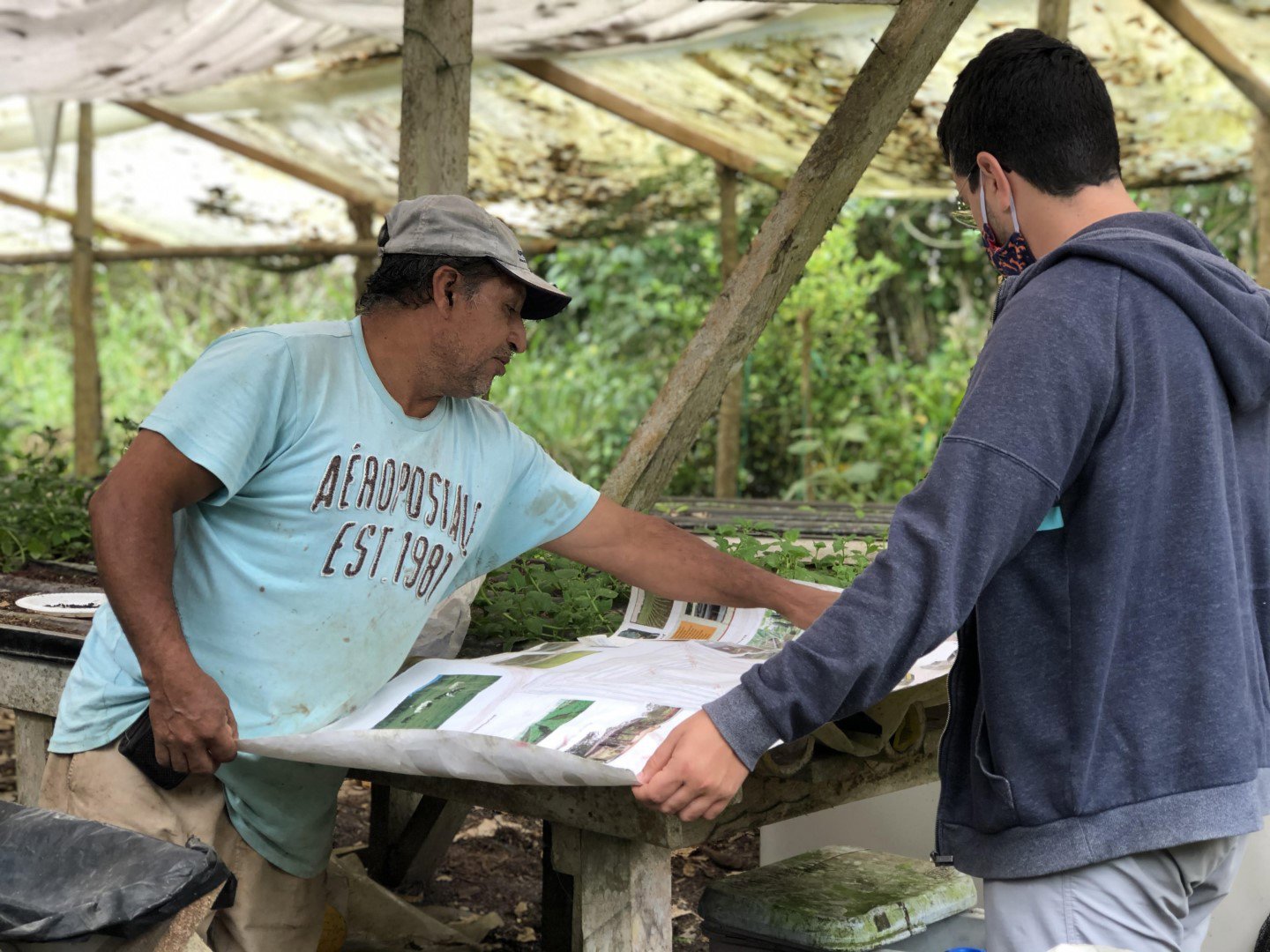With the urgent risk of loss and expropriation of cultural heritage in the West Bank, Silvia Hassouna undertook a four month research project in the Palestinian towns of Ramallah and Bethlehem to study innovative approaches being adopted by museums to preserve Palestinian life in a context of cultural erasure. We caught up with Silvia to find out more about her research.
What is the background to your fieldwork? What drew you to the project?
My fieldwork is part of my PhD research project on emerging cultural movements in the West Bank. I examine the work of contemporary museums in the Occupied Territories in order to revisit conceptions of 'land' and national identity in Israel-Palestine. I am particularly influenced by postcolonial geographies that have been attentive to the ways that social groups in the Global South creatively represent their place and identity for internal and external audiences. In contrast to narratives that are exclusively focused on Palestinian violence and geopolitics, I wanted to unveil alternative political imaginaries that come from Palestinian cultural practitioners and are often overlooked.
What questions did you set out to answer? What did you find out?
During my fieldwork I was volunteering at the Palestine Museum of Natural History (PMNH) in Bethlehem, an institution that works in nature conservation, education and endangered animals’ rehabilitation. My broad questions were the following:
-
What is the contemporary relationship between ecology and Palestinian cultural identity?
-
What notions of nature and ecology lie at the core of the PMNH’s vision and how do they feed into emerging political narratives and possible futures?
-
How does the PMNH work in practice and what are the main struggles it faces?
My main finding is that different ideas of nature and land are used to create new national imaginaries that are not exclusively focused on human politics, but include endangered animals and ecosystems.

Palestinian Museum, Birzeit. September 2019. Curator Tina Sherwell gives a tour of her exhibition Intimate Terrains on how representations of landscape have evolved from the 1930s to present.
Was the experience of fieldwork what you were expecting?
As it is often the case with my visits to Palestine, the fieldwork gave me more than I expected. I had been in the West Bank before but this time I really had the chance to savour it during the three months I have lived in Ramallah. I had the opportunity to observe and participate in the work of bright and original curators, artists, zoologists, biologists and architects all working towards nature and cultural conservation. I also experienced nature and outdoor life in rural areas of Palestine, in contrast with my previous experiences that had been limited to mainly urban centres.
Do you have a highlight from your fieldwork?
I made a four minute film to try and capture the incredible diversity of the landscape, from the rural idyll to the brutality of the Israeli separation wall. The song I used in the video is by the Lebanese singer Marcel Khalife and is based on a poem by Mahmoud Darwish. Through the song, I attempted to convey the many voices of the land, as if the land spoke for itself and exceeds the politics of human interventions.

Birzeit University Museum. October 2019. Silvia and a friend at the inauguration of an exhibition ‘Past Tense’, curated by Jack Persekian, looking at overlays of old and new photographs of Jerusalem.
What will you take away from your fieldwork and how will you use this going forward? What’s next?
The main take away is that Palestine is not just a land of conflict and violence, it is also a place of creativity and innovation. I am at the final stages of my PhD write up and am currently working towards submitting my thesis. In the future, I would love to expand my research on Palestinian cultural movements through a Postdoc fellowship. I would also like to establish some form of collaboration between UK and Palestinian universities and university museums on alternative narratives around nationalism and identity. Digital exhibitions and online projects seem to be the way forward in light of mobility restrictions imposed by Israel and, more recently, the pandemic.

Palestine Museum of Natural History, Bethlehem, West Bank. August 2019. A volunteer plants flowers in the museum gardens.
Frederick Soddy Postgraduate Award
Silvia’s research was supported in part by the Frederick Soddy Trust through the Frederick Soddy Postgraduate Awards.

